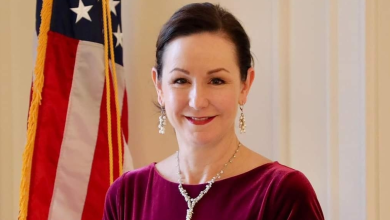The PVO Amendment Bill: A Revolutionary Step Towards Regulating Civic Society in Zimbabwe

The Private Voluntary Organisations (PVO) Amendment Bill, recently passed by Zimbabwe’s Parliament, has been hailed as a landmark piece of legislation that will reshape how civic society operates within the country. Minister of Justice, Legal, and Parliamentary Affairs Ziyambi Ziyambi commended this move, asserting that the Bill will foster better oversight and accountability among Non-Governmental Organisations (NGOs) and voluntary groups, while ensuring they align with the nation’s development goals.
Enhanced Oversight of Civic Society
The PVO Amendment Bill introduces a comprehensive framework to monitor and regulate NGOs, ensuring their activities comply with national laws. By establishing stringent guidelines, the government aims to minimize instances of misconduct or actions that could tarnish Zimbabwe’s reputation or impede its development agenda. This enhanced oversight is not designed to curtail NGO operations, but rather to ensure they operate within legal boundaries, promoting a well-organized civil society that upholds the country’s sovereignty.
Prevention of Fund Mismanagement
A key provision of the Bill is its emphasis on transparency and accountability in fund management. NGOs will be required to submit regular financial reports, ensuring that donor funds are used for their intended purposes. This level of scrutiny is essential to prevent embezzlement or misappropriation of funds, fostering a culture of compliance and ethical standards within civic society. The government’s proactive approach is expected to instill confidence among both local communities and international donors.
Improved Tracking of Foreign Aid
One of the most discussed aspects of the PVO Amendment Bill is its regulation of foreign funding. By closely monitoring the sources and uses of foreign aid, the government seeks to protect Zimbabwe from external influences that may interfere with its domestic affairs. This approach ensures that foreign aid is utilized in a manner that aligns with national interests, particularly in critical sectors such as health, education, and infrastructure.
Mitigating Extremism
In addition to regulating foreign aid, the Bill provides mechanisms to vet NGOs for extremist affiliations. This measure is designed to ensure that funding is channeled to organizations that promote peace and stability, safeguarding the nation from the dangers of extremism. By doing so, the government is reaffirming its commitment to maintaining security and social harmony in the country.
Data Collection and Policy Formulation
The Bill mandates that NGOs submit reports detailing their activities, enabling the government to gather valuable data on various social issues. This data will play a critical role in informing government policies and resource allocation, allowing for more effective responses to pressing societal challenges. By leveraging this information, the government can tailor its interventions and development strategies to meet the specific needs of its communities.
Alignment with National Development Goals
The PVO Amendment Bill also positions the government to better guide NGO efforts toward national priorities. Whether it’s improving healthcare, enhancing education, or developing infrastructure, NGOs will be expected to align their projects with Zimbabwe’s broader development agenda. This alignment will help create more resilient communities that can effectively tackle socioeconomic challenges, while also fostering a spirit of collaboration between the government and civil society.
A Flexible Response to Emerging Issues
The Bill provides a framework for rapid mobilization of NGOs in response to emergencies, such as economic crises or natural disasters. This flexibility ensures that civic society can play a pivotal role in addressing urgent social issues, complementing government efforts. Moreover, the regulation encourages NGOs to adopt best practices, improving service delivery and project management for the benefit of the communities they serve.
As the Bill now awaits transmission to the Senate for further deliberation, its passage marks a significant step toward building a more transparent, accountable, and responsive civic society in Zimbabwe. The government’s focus on ensuring that NGOs contribute to national development and adhere to ethical standards signals a new era of collaboration and oversight in the country’s civic space.
Conclusion
The PVO Amendment Bill has the potential to revolutionize Zimbabwe’s civic society by promoting transparency, accountability, and alignment with national priorities. While some critics may view it as restrictive, proponents argue that it is a necessary tool for ensuring that NGOs operate within the legal framework and contribute meaningfully to the country’s development. As Zimbabwe continues to grapple with various challenges, the PVO Amendment Bill offers a path toward a more structured and effective partnership between the government and civil society.




